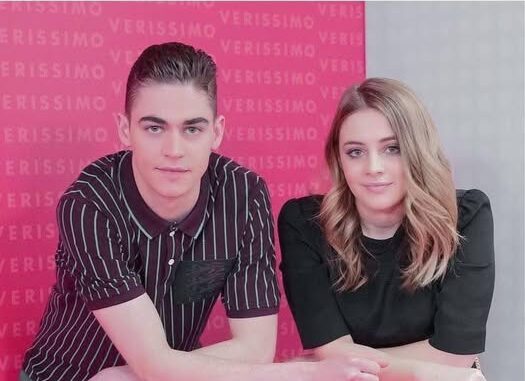
There’s something about Tessa and Hardin that keeps us coming back — again, and again, and again. Maybe it’s the fiery tension. Maybe it’s the whispered apologies. Maybe it’s the fact that love, when it’s messy and chaotic, feels real to so many of us.
After We Fell, the third film in the After franchise, has sparked intense reactions ever since its release. Critics call it “problematic.” Fans call it “relatable.” But one thing is clear: it’s one of the most talked-about love stories of its generation. And maybe, just maybe, the reason why is that it’s not perfect — because neither are we.
A Love That Hurts — and Heals?
At the center of After We Fell is the relentless romance between Tessa Young and Hardin Scott. By this point in the story, they’ve broken up, gotten back together, screamed at each other, forgiven each other, and hurt each other again. And still — they can’t let go.
After We Fell explores the aftermath of those emotional roller coasters. Tessa is torn between a new job opportunity in Seattle and her life with Hardin. Hardin, in turn, is haunted by his past, terrified of abandonment, and controlled by his anger.
It’s raw. It’s flawed. It’s deeply toxic. But it’s also honest in ways that Hollywood love stories rarely are. It doesn’t sugarcoat the pain. And that’s why so many fans — especially young viewers — connect so deeply with it.
The Power of Imperfect Love
Some critics accuse the After series of romanticizing toxicity. And to an extent, that concern is valid. The controlling behavior. The angry outbursts. The emotional manipulation. These are not traits of a healthy relationship.
But After We Fell also doesn’t pretend they are. The film shows the damage — to both Tessa and Hardin — as well as their attempts to heal. It doesn’t frame their love as perfect. It frames it as real.
In a world of filtered Instagram couples and picture-perfect rom-coms, After We Fell offers something messy and human. It forces uncomfortable questions: Can people change? Can love survive damage? When does passion cross a line?
For many viewers, the mess is the point. It gives them space to feel seen — not because they aspire to a love like Hardin and Tessa’s, but because they’ve lived something like it.
Chemistry That Can’t Be Faked
Of course, much of the film’s intensity comes down to the undeniable chemistry between Josephine Langford and Hero Fiennes Tiffin. On-screen, their connection feels electric. Every glare, every kiss, every tear feels deeply charged.
Off-screen, their professionalism is even more impressive. Despite constant fan speculation, the two have repeatedly stated that they’re not dating in real life. And yet, the emotional honesty they bring to each scene makes you wonder: how do they do it?
The answer, perhaps, lies in trust. Both actors have spoken about how comfortable they feel working together. They know each other’s rhythms. They know when to push and when to pull back. And when the cameras roll, they dive deep into the emotional trenches together — and take us with them.
A Story That Grew with Its Audience
The After franchise didn’t start in a Hollywood boardroom. It started on Wattpad — a fanfiction site where young readers devoured thousands of chapters about a complicated couple finding their way through love.
That origin matters. Because After We Fell doesn’t feel like a polished studio product. It feels like a story built from emotion, heartbreak, and passion. Its characters are confused. They make mistakes. They bleed. Just like the people reading — or watching — their journey.
And as the story has grown from page to screen, so has its audience. Many of the original Wattpad readers are now in their 20s, looking back at the After films as a mirror of their own emotional evolution. It may be dramatic, but it’s also a rite of passage.
Why We Can’t Look Away
After We Fell doesn’t try to be everyone’s favorite movie. It’s polarizing. It’s dramatic. It’s flawed. But that’s also its strength.
For better or worse, it’s honest about how complicated love can be — especially when you’re young and trying to figure out who you are. Tessa and Hardin are messy because love is messy. They hurt each other because pain often travels with passion. And even when they shouldn’t be together, they still try — because sometimes, love makes no sense at all.
After We Fell isn’t a guidebook for relationships. But it is a reflection of something real: the fire, the fear, the need, the damage, the hope. It shows us how people fall apart and still try to fall back together. And whether you love it or hate it, you feel it.
And maybe that’s why we keep watching — not because it’s perfect, but because it reminds us that we don’t have to be either.
